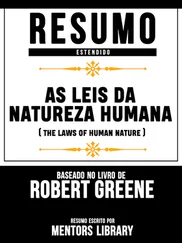Samuel Goodrich - Curiosities of Human Nature
Здесь есть возможность читать онлайн «Samuel Goodrich - Curiosities of Human Nature» — ознакомительный отрывок электронной книги совершенно бесплатно, а после прочтения отрывка купить полную версию. В некоторых случаях можно слушать аудио, скачать через торрент в формате fb2 и присутствует краткое содержание. Жанр: foreign_prose, на английском языке. Описание произведения, (предисловие) а так же отзывы посетителей доступны на портале библиотеки ЛибКат.
- Название:Curiosities of Human Nature
- Автор:
- Жанр:
- Год:неизвестен
- ISBN:нет данных
- Рейтинг книги:3 / 5. Голосов: 1
-
Избранное:Добавить в избранное
- Отзывы:
-
Ваша оценка:
- 60
- 1
- 2
- 3
- 4
- 5
Curiosities of Human Nature: краткое содержание, описание и аннотация
Предлагаем к чтению аннотацию, описание, краткое содержание или предисловие (зависит от того, что написал сам автор книги «Curiosities of Human Nature»). Если вы не нашли необходимую информацию о книге — напишите в комментариях, мы постараемся отыскать её.
Curiosities of Human Nature — читать онлайн ознакомительный отрывок
Ниже представлен текст книги, разбитый по страницам. Система сохранения места последней прочитанной страницы, позволяет с удобством читать онлайн бесплатно книгу «Curiosities of Human Nature», без необходимости каждый раз заново искать на чём Вы остановились. Поставьте закладку, и сможете в любой момент перейти на страницу, на которой закончили чтение.
Интервал:
Закладка:
In 1654, he invented his arithmetical triangle, for the solution of problems respecting the combinations of stakes, in unfinished games of hazard; and long after that, he wrote his Demonstrations of the Problems relating to the Cycloid; besides several pieces on other subjects in the higher branches of the mathematics, for which his genius was probably most fitted. Pascal, though not rich, was independent in his circumstances; and as his peculiar talents, his former habits, and the state of his health, all called for retirement, he adopted a secluded mode of life. From 1655, he associated only with a few friends of the same religious opinions with himself, and lived for the most part in privacy in the society of Port Royal.
At this period, the Catholics being divided into Jesuits and Jansenists, Pascal, being of the latter, published his famous Provincial Letters. These are so distinguished for their admirable wit, their keen argument, and their exquisite beauty of style, as to have even extorted praise from Voltaire and D'Alembert. He also wrote other pieces against the Jesuits, marked with great talent.
Pascal's health, however, continued to decline; and it is probable that his mind suffered in consequence. Though his life had been singularly blameless, still he seemed to be pained with a sense of inward sin. He was accustomed to wear an iron belt around his waist, in which were sharp points, upon which he would strike his elbows, or his arms, when any unholy passion crossed his mind. He continued to practise charity toward all mankind, and severe austerities to himself, until at last he was attacked with sickness, and on the 19th of August, 1662, he died. His last words were, "May God never forsake me!"
The latter part of his life was wholly spent in religious meditations, though he committed to paper such pious thoughts as occurred to him. These were published after his death, under the title of "Thoughts on Religion and other Subjects." They have been greatly admired for their depth, eloquence and Christian spirit.
GROTIUS
Hugo Grotius, celebrated for his early display of genius and learning, as well as for his adventures and writings in after life, was born at Delft, in Holland, April 10, 1583. He had the best masters to direct his education, and from childhood, was not only distinguished by the great brilliancy of his mind, but also by his application to study. Such was his progress, that, at eight years of age, he composed Latin elegiac verses of great cleverness, and at fourteen, he maintained public theses in mathematics, law, and philosophy with general applause. His reputation by this time was established, and he was mentioned by the principal scholars of the age, as a prodigy of learning, and as destined to make a conspicuous figure in the republic of letters.
In 1598, he accompanied Barnevelt, ambassador extraordinary of the Dutch Republic, in a journey to France, where he was introduced to Henry IV., who was so pleased with his learning, that he presented him with his picture and a gold chain. While in France, he took the degree of doctor of laws. The following year he commenced practice as an advocate, and pleaded his first cause at Delft. In the same year, though then only seventeen, he was chosen historiographer to the United Provinces, in preference to several learned men who were candidates for that office.
Grotius now rapidly rose in rank and reputation: he published several works of great merit, and was appointed to various public offices of high trust. On one occasion he was sent by the government to England to attend to some negotiations, at which time he became acquainted with King James II. But serious religious difficulties now began to agitate Holland. In 1618, a synod met at Dort to take these into consideration. They proceeded to condemn the Arminian doctrines, and to banish all the preachers who upheld them. Barnevelt, who was a celebrated statesman, Grotius, and Hoogurbetz, advocated these sentiments; they were tried and condemned; the first was executed and the two others were sentenced to perpetual imprisonment.
In his prison of Louvestien, Grotius found consolation in literary pursuits. His wife, after much entreaty, was permitted to visit him, and she did everything which the most devoted affection could suggest, to alleviate his confinement. She was accustomed to send him books in the chest which was conveyed out and in, with his linen: this was carefully examined by the jailer, for a time, but finding nothing amiss, he became less suspicious and careful.
Taking notice of this, the wife of Grotius, after he had been confined about two years, devised a scheme for his escape. She pretended to have a large quantity of books to send away. Having a small chest of drawers, about three feet and a half long, she packed her husband into it, and it was carried out by two soldiers, who supposed they were transporting a quantity of books. The chest was now put on a horse, and carried to Gorcum, where the illustrious prisoner was set at liberty.
Disguised in the dress of a mason, with a rule and a trowel in his hand, he fled to Antwerp, which was not under the government of the Stadtholder, Prince Maurice, who had caused his imprisonment. Here he wrote to the State's General of Holland, asserting his innocence of any wrong, in the course he had taken, and for which he had been deprived of liberty. He afterwards went to Paris, where he received a pension from the king.
After the death of Prince Maurice, his confiscated property and estates were restored, and he returned to Holland; but he still found such a spirit of rancor against him, among the principal persons, that he left the country forever, and took up his residence at Hamburgh. Here he received the most flattering proposals from the kings of Portugal, Spain, Denmark, and other countries, who admired his great abilities, and desired him to seek shelter and protection with them.
He finally adopted Sweden as his country, and becoming the queen's ambassador to France, he proceeded, in that character, to Paris, where, for eight years, he sustained the interests of his patron with firmness and dignity. At last, being weary of public life, he solicited his recall. In August, 1648, he embarked for Lubec, where he intended to reside; but, meeting with a dreadful storm, he was driven upon the coast of Pomerania, and obliged to take a land journey of sixty miles, in order to reach Rostock, during which he was exposed to the rain and inclement weather. A fever soon set in, and at midnight, on the 28th of August, the illustrious stranger died.
Grotius has left behind him many works, some of them of great value. His treatise upon the "Truth of the Christian Religion," written in Latin, like his other productions, is one of the best defences of that system which has ever appeared. His work on the law of Peace and War, is still of high authority. We must look upon Grotius as a man of great acuteness, as well as vast expanse of mind. He was, indeed, in advance of his generation, and, like other patriots and philanthropists, who see farther than those around them, he was an object of hatred and disgust, for those very things which in an after age brought him the homage and gratitude of mankind. In an intolerant age, Grotius was in favor of toleration, and this alone was a crime which his generation could not forget or forgive.
NEWTON
Sir Isaac Newton, the greatest of natural philosophers, was born at Woolsthorpe, in Lincolnshire, December 25, 1642, old style. At his birth he was so small and weak that his life was despaired of. On the death of his father, which took place while he was yet an infant, the manor of Woolsthorpe became his heritage. His mother sent him, at an early age, to the village school, and in his twelfth year, to the seminary of Grantham.
Читать дальшеИнтервал:
Закладка:
Похожие книги на «Curiosities of Human Nature»
Представляем Вашему вниманию похожие книги на «Curiosities of Human Nature» списком для выбора. Мы отобрали схожую по названию и смыслу литературу в надежде предоставить читателям больше вариантов отыскать новые, интересные, ещё непрочитанные произведения.
Обсуждение, отзывы о книге «Curiosities of Human Nature» и просто собственные мнения читателей. Оставьте ваши комментарии, напишите, что Вы думаете о произведении, его смысле или главных героях. Укажите что конкретно понравилось, а что нет, и почему Вы так считаете.












